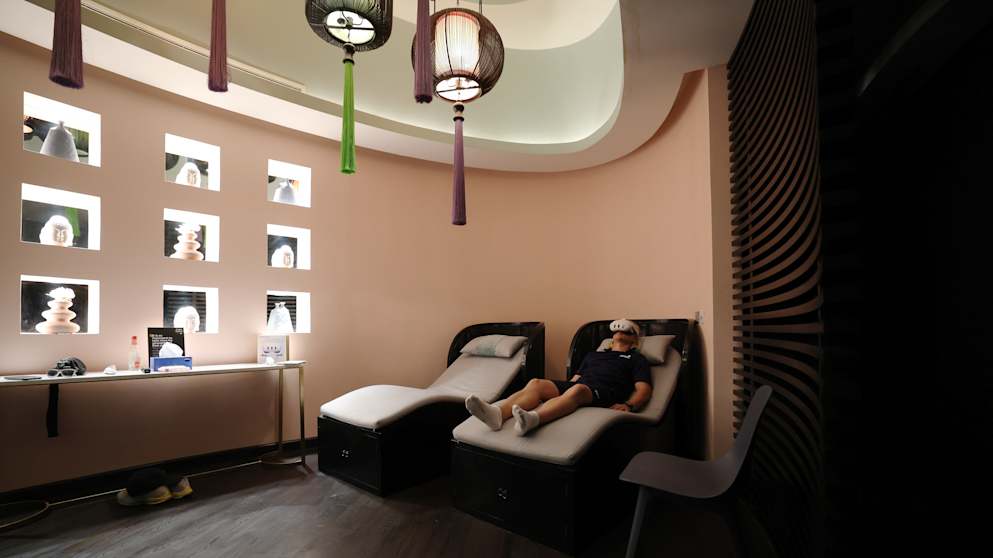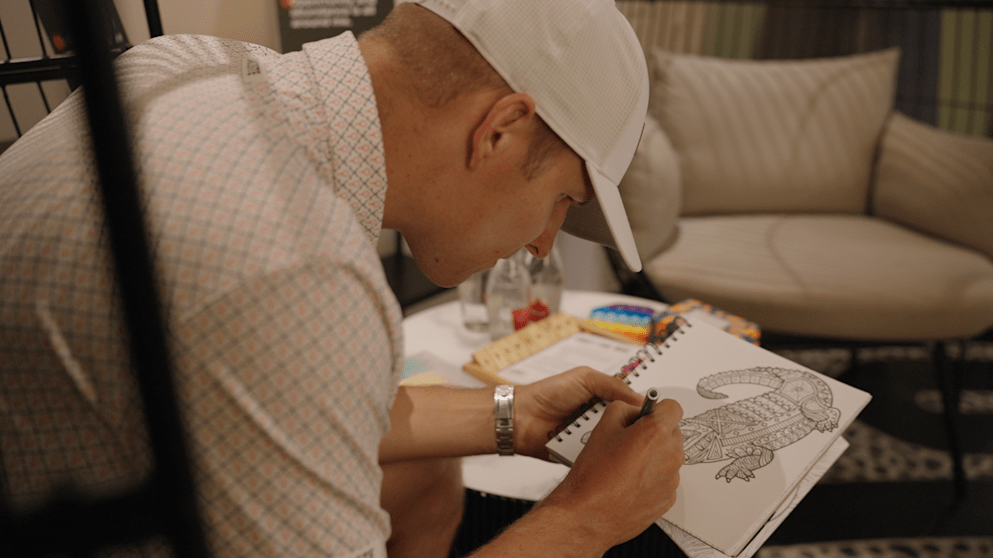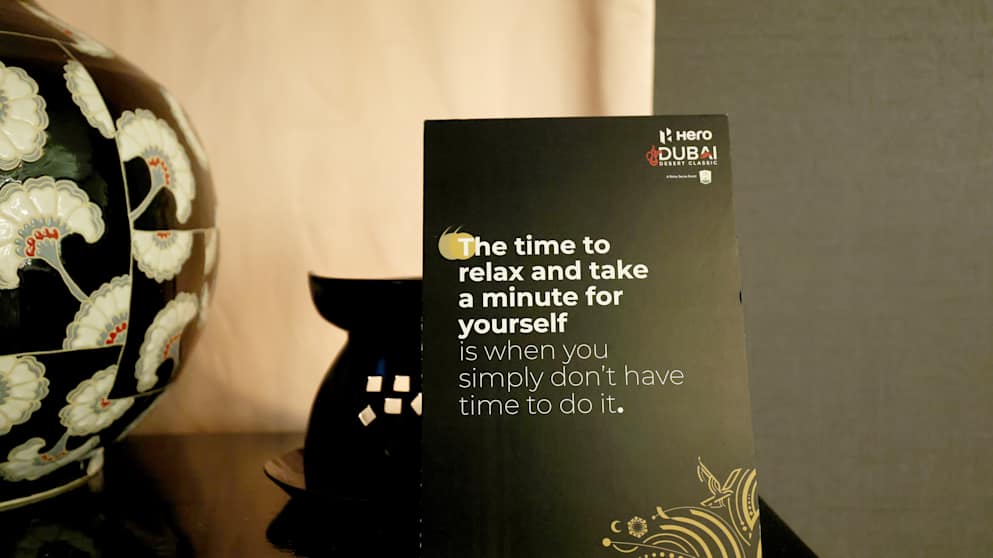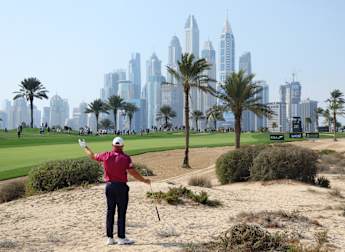By Mathieu Wood
Like all sports at the elite level, golf presents a multitude of challenges for players and those around them. It’s rewarding, unforgiving and inspiring, often in equal measure in any given week.

Many of those teeing it up this week at the Hero Dubai Desert Classic – the first individual event of the year on the DP World Tour – have spoken of feeling reinvigorated as they make their return to action after the festive break and a long year on the road.
While elite athletes can often appear infallible in their trade, they - like anybody else - are not immune to psychological strains.
So, with players thrust straight into a Rolex Series event, efforts to support sustainable high performance are continually being put at the top of agenda. This is reinforced following the death by suicide of American PGA TOUR winner Grayson Murray last year
Introduced for the first time at last year’s Hero Dubai Desert Classic, the innovative Mental Fitness Zone made its return this week at Emirates Golf Club.
Open to players, caddies and player support team members, there are four “zones” as part of the pioneering initiative.
Of those, one enables players to reflect via journals and do mind puzzles such as sudoku, another focuses specifically on mindfulness, a third offers a virtual reality experience to support their visualisation and breathing, while there is also a sleep chamber to take time out and facilitate restorative benefits.


Dr Phil Hopley, a leading expert in the field of mental health and performance as a Consultation Sport Psychiatrist, has worked across individual and team sports for the last 20 years and supports Dr. Andrew Murray, Chief Medical and Scientific Officer, DP World Tour, at the Mental Fitness Zone.
"Once people start talking about this and see this as being as important as physical fitness, conditioning, nutrition and hydration, [they realise] mental fitness is just as important, if not arguably more important in a sport like golf," he told the DP World Tour.
"We are all on the spectrum, move up and down by the hour, day by day, week by week.
"At the top end, looking around on the driving range, we can see people who are absolutely flourishing and on top of their game.
"But equally there'll be a small number of people here who have symptoms of common mental illness. Now, they might not recognise that, not know that, but we see it on the spectrum of people moving up and down.
"There is nothing unique in elite sports."
In an all-consuming sport like golf, putting in place facilities that can help optimise health and performance has never been more important as is the influence of athletes talking openly about their own experiences.
Earlier this week, Mike Lorenzo-Vera returned to competitive action after a six-month absence due to mental health issues, while DP World Tour winner Daniel Gavins revealed in the Green Room he began working with a hypnotherapist last year amid a tough time on and off the golf course.
Tommy Fleetwood, a Ryder Cup star and seven-time winner on the DP World Tour, credited tournament organisers in Dubai for their proactiveness, and is hopeful it will become more prevalent across the sport.
"For us, as golfers, I think we are always chasing our own expectations in dealing with the disappointments in that way," said the Englishman.
"Some people find it easier than others to be accepting or deal with that, and some find it harder.
"I think having that around will be really good, and I'm sure it will probably be more of an addition throughout the year as tournaments go on.
"I've had times where I thought that I couldn't do it anymore or needed to look at doing something else when I was at my worst."

Mental wellbeing has become an increasingly important topic in society, and elite sport, but the biggest challenge can often be in diagnosing a mental illness.
Dr Hopley highlighted the important of early intervention and how the provision of psychological support and psychiatric input has been "transformative" in certain cases.
"It's helped [players] either retain their card, regain their card, improve their performance and really get back to their best so it [the support we offer] is always highly appreciated.”
Dr Hopley believes the Covid-19 pandemic has played its part in helping society move in a direction where there is a reduction in stigma associated with mental health.
"We all went through this very seismic change in the way that we lived our lives," he explained.
"We were under lockdown in most countries, communicating on Zoom, looking into other people's lives and there was a good focus in a positive way in a lot of nations on supporting people's mental health, not just ourselves and our families but the people we work with and are connected with."










